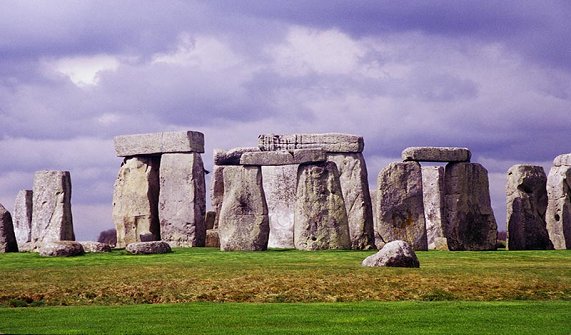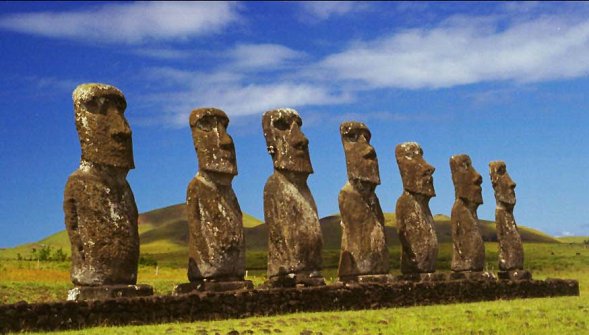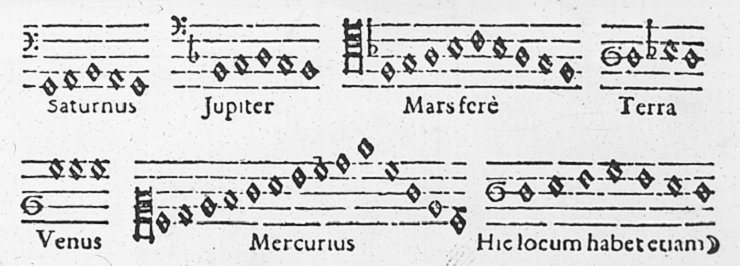Space music
Science always liked music. Pitagoras discovered integer proportions for chord length producing “harmony”. Now, numbers which are not integer proportion, we call “irrational”. Galileo Galilei got interest in Physics listening to his father – violin maker. Kepler found “his” three laws trying to inscribe planetary orbits within “regular” volumes: tetrahedral, cube and so on. Even solutions of the Schrödinger equation are expressed in “spherical harmonics”. Does some transcendental harmony really exist in the Universe?
Astronomy is the oldest sciences. First astronomical site probably was Stonehenge, constructed somewhen between 3100-2000 BC on England's Salisbury Plain. Some astronomers suggest that Stonehenge was used to keep track of the solar-lunar eclipses.
 |
 |
The megalithic ruin known as Stonehenge. |
Ranoraraku - the Moai quarry. |
Harmonice Mundi


”Music of the spheres” from ”The Harmony of the World”.
Johannes Kepler claimed that the heavenly motions are nothing but a continual music of several voices, which can be comprehended by intellect not by the
ear.
"... and the whole heaven to be a musical scale and a number... "